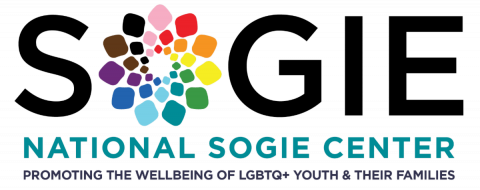SECTION TWO
Responses for When Things Don't Go Well
Coming out can be a very vulnerable experience, even more so when you don't know what to say. For example, parents may react with silence when you come out, so what can you say to get out of this situation?
If parents are unsupportive when a LGBTQIA2S+ child (at any age) comes out, saying things like "I can never accept you like this," it can be incredibly challenging. Here are some things you may consider saying to your parents or caregivers in such a situation. You can reword these so that they feel authentic to your own voice, comfort, and needs.
- "I understand this might be difficult for you to accept, but this is who I am. I need your love and support more than ever right now."
- "I'm not asking you to understand everything right away, but I am asking you to respect and accept me as your child."
- "I know this might go against your beliefs, but please try to see things from my perspective. I just want to live authentically and be happy."
- "My sexual orientation/gender identity is not a choice, but your acceptance of me is. I hope you can choose to love me for who I am."
- "Your reaction is hurting me deeply. I need you to understand that I am still the same person you raised and loved."
- "I'm not asking you to change your beliefs, but I am asking you to love and support your child unconditionally."
- "I'm scared and vulnerable right now, and I need my parents to be there for me. Can we talk about how we can move forward together?"
- "I love you, and I want you to be a part of my life, but I can't continue to hide who I am just to please you."
- "I hope that with time you'll come to see that my happiness and well-being are what truly matter. I'll be waiting for you to come around."
- "I wonder if you can connect with other parents or relatives to process your reaction to this news before we talk more about it, so to protect our connection."
In difficult situations like this, it's important for you to prioritize your own well-being and seek support from friends, other family members, or supportive communities if needed.


